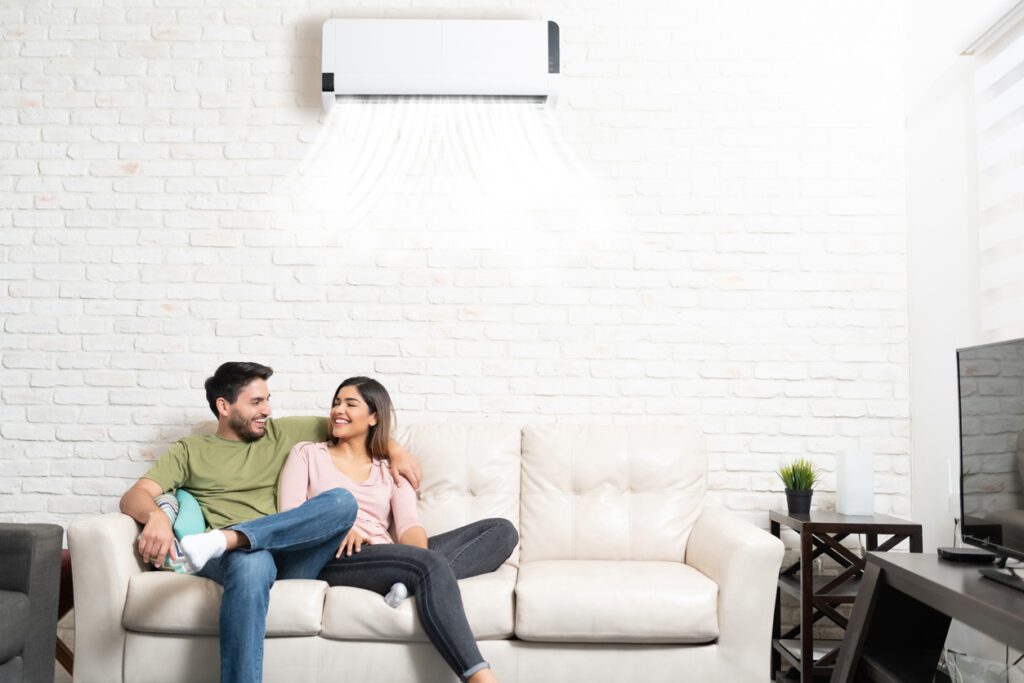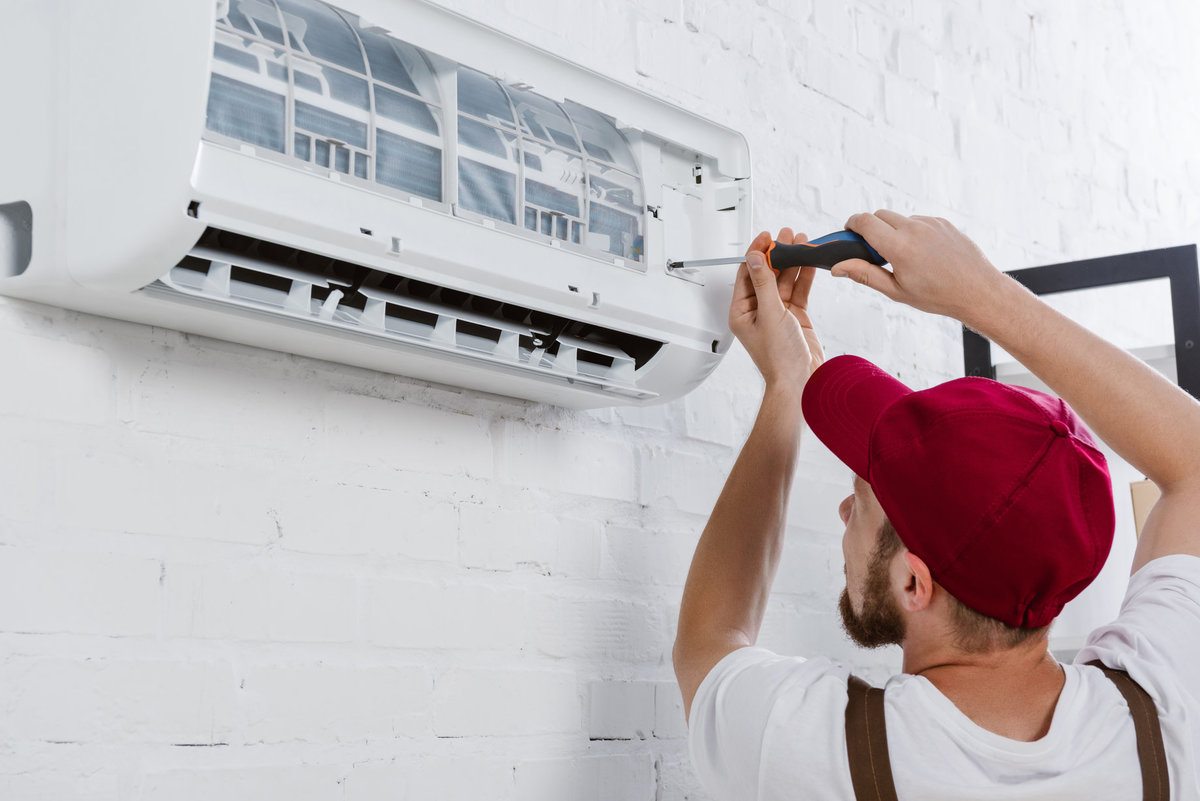Air conditioner leaks can lead to a range of problems, from mold growth to water damage, and therefore, must be dealt with promptly and efficiently.
Orlando, FL AC Repair: Identifying the Source of the Leak
Fix leaks like here: acrepairorlandoflpros.com
The first step in handling any air conditioner leak is to identify its source. The leak could be due to a clogged drain line, a damaged or rusted drain pan, or a dirty air filter. Understanding where the leak is coming from helps to devise an effective solution.
Air Conditioning Repair in Orlando, FL: The Importance of Regular Maintenance
Regular maintenance is a proactive method for preventing air conditioner leaks.
- Replacing the air filters every two months.
- Clearing the drain line of any blockages.
- Checking for any signs of rust or damage and rectifying them immediately.
HVAC Repair or Replacement in Orlando, FL
If the leakage is due to a damaged part, consider repairing or replacing it. For instance, a rusted drain pan can be replaced with a new one. If the leakage is due to a more severe issue, such as a refrigerant leak, it’s advisable to consult a professional for repair work.
Expert AC Repair Services in Orlando, FL
The condenser unit should be insulated and covered during harsh weather conditions, as these can lead to leaks. Insulation also helps to improve the overall efficiency of the air conditioning unit.
Finding the Best Air Conditioning Services in Orlando, FL
If the leak persists despite all efforts, hire a professional. They have the skills and tools necessary to diagnose and correct the issue effectively.
The Significance of Air Conditioning Companies in Orlando, FL
It’s vital to handle air conditioner leaks as soon as they’re noticed to prevent further damage.
- Increased energy bills due to decreased AC efficiency.
- Water damage to walls and floors.
- Growth of mold and mildew, leading to health issues.
To summarize, air conditioner leaks can be effectively managed through regular maintenance, timely repair or replacement of damaged parts, insulating the condenser unit, and hiring professionals when necessary. The importance of early intervention in handling these leaks cannot be overstated.
Reducing your air conditioning usage when you’re not home is one strategic way of saving energy and cutting your costs. Even though it might be tempting to keep your AC running at a consistent temperature throughout the day, this can lead to unnecessary energy expenditure and high electricity bills. Here are some tips on how to efficiently lower your AC usage when you’re not home.
Use a Programmable Thermostat
A programmable thermostat can help manage your AC usage by automatically adjusting the temperature based on your preset schedule. For example, you can set the thermostat to increase the temperature when you’re typically not home and cool your home down about half an hour before you return.
markdown *Morning: Set temperature higher as you leave for work. *Daytime: Maintain a higher temperature when the house is empty. *Evening: Lower the temperature half an hour before you arrive home. *Overnight: Slightly increase the temperature for comfortable sleep. Invest in Energy-Efficient Equipment
Air conditioning units with high Seasonal Energy Efficiency Ratio (SEER) ratings are designed to use less energy than older, less efficient models. Investing in such equipment can help to save energy and reduce your electricity bills in the long run.
Keep AC Equipment Well-Maintained
Regular maintenance of your AC equipment can prevent it from working harder than it needs to, thus reducing energy usage and prolonging the life of your unit. This can include cleaning or changing the filters regularly and scheduling professional service checks.
Maximize Natural Ventilation
When the weather is cooler, especially during the early mornings and late evenings, turn off your AC and open the windows to allow natural ventilation. This can help to keep your home cool without relying on your air conditioner.
markdown | Method | Description | |———————————|———————————————————————————————————————————————| | Use a programmable thermostat | Automate temperature settings based on your schedule. | | Invest in energy-efficient AC | Save energy with high SEER-rated units. | | Regular AC maintenance | Prevent AC from working harder than needed and prolong its lifespan. | | Maximize natural ventilation | Utilize cool weather to naturally ventilate your home. | Control Sunlight Entry
To reduce the heat entering your home, close blinds and curtains, particularly those that face the sun during the hottest parts of the day. This prevents your AC from having to work extra hard to cool down your home.
Reducing your AC usage when you’re not home requires a combination of strategic planning, investing in the right equipment, and making good use of natural resources. With these tips, you can manage your energy consumption effectively and keep your home comfortable.
Regular maintenance of your air conditioning unit is vital for its long-term performance and efficiency. It not only helps in maintaining a comfortable temperature in your home but also extends the lifespan of the unit, reduces energy consumption, and prevents costly repairs or replacements. Here is a comprehensive guide to keeping your air conditioning unit in its best shape.
AC Installation Services in Orlando, FL
One of the most basic yet essential aspects of air conditioning maintenance involves regular cleaning of the unit.
- Dusting off the exterior and cleaning the vents regularly.
- Cleaning or replacing the air filters once every month, especially during the peak usage. Dirty filters restrict air flow making the unit work harder, thereby increasing energy consumption.
- Cleaning the evaporator and condenser coils annually. Dirty coils can reduce the system’s ability to cool your home and cause the system to run longer, increasing energy costs and reducing the life of the equipment.
Professional HVAC Repair in Orlando, FL
While there are several DIY measures you can take, some aspects of AC maintenance are best left to professionals.
- Systematic inspection of the unit: A professional service technician can spot and address potential issues before they turn into major problems.
- A professional can check and refill this as part of routine maintenance.
- Checking and sealing duct leakage: Any leakage in the ducts can lead to significant loss of cooling efficiency.
Discovering the Best AC Companies in Orlando, FL
The way you use your air conditioning unit can also contribute to its upkeep.
- Keeping the temperature at a consistent level as much as possible. Constantly changing the temperature causes the unit to work harder.
- Use a programmable thermostat to automatically adjust the temperature when you’re not home or during the night.
Orlando, FL Air Conditioning Repair and Regular Checkups
Finally, it’s advisable to have regular checkups of your air conditioning unit. Ideally, you should aim to have a professional inspection and maintenance service once a year. This will ensure that your unit stays in top-notch condition and serves you well for years to come.
It’s about enhancing the lifespan of the system, keeping energy costs in check, and maintaining the overall health of your home environment.
Essential Guide to Air Conditioner Repair in Orlando, FL
Just like any other home appliance, an air conditioning unit requires regular cleaning to ensure optimal performance. Neglecting this important task can lead to a decrease in efficiency, higher energy costs, and even system breakdowns. Here’s an essential guide to keeping your air conditioning unit clean.
Exploring the Best HVAC Companies in Orlando, FL for Your AC Unit Maintenance
Maintaining a clean air conditioning unit is not just about improving its efficiency, but it also has several other benefits:
- Prevents system breakdowns:
- Improves air quality:A dirty AC unit can circulate dust, dirt, and allergens throughout your home, affecting your indoor air quality.
- Extends the lifespan of your unit:
- Reduces energy consumption:A clean AC unit uses less energy to cool your home, which can help lower your energy bills.
- Turn off the power:Before you start cleaning, make sure to turn off the power to your unit to avoid any electrical hazards.
- Clean the exterior:
- Clean the filter:Remove the filter and gently wash it with warm, soapy water. If it is heavily soiled or damaged, consider replacing it.
- Clean the evaporator coils:Using a soft brush, carefully clean the coils of any dust or dirt. You can also use a coil cleaner for a deeper clean.
- Clean the drain pan:Pour a mixture of vinegar and water into the drain pan to clean it and prevent mold growth.
- Clean the fan blades:Wipe down the fan blades with a damp cloth to remove dust.
It’s recommended to clean your air conditioning unit at least once a year, preferably at the beginning of the cooling season. However, if you live in a dusty area or have pets, you may need to clean it more often.
Hiring a Professional
While the aforementioned steps can be performed by homeowners, it’s advisable to hire a professional for a thorough cleaning.
Hence, it is an essential part of AC maintenance.
Covering your windows plays a crucial role in maximizing the efficiency of your air conditioning (AC) system. An estimated 30% of a home’s heating energy is lost through windows, and during summer, direct sunlight through windows can increase your cooling cost. Covering your windows, in this case, can significantly help to reduce energy usage and save on utility bills.
Heat Gain from Windows
Windows can allow a significant amount of heat to enter your home, particularly if they are not covered. The heat gain from your windows can make your AC system work harder to maintain your desired indoor temperature, thereby reducing its efficiency. Therefore, window coverings are essential for preventing heat gain and improving AC efficiency.
Types of Window Coverings
Various types of window coverings can be used to block heat from entering through your windows.
- Curtains and drapes: These not only add to the aesthetic appeal of your home but also reduce heat gain. The effectiveness largely depends on the color and type of fabric.
- Blinds and shades: These are highly effective in controlling light and heat from the sun. They can be adjusted to control the amount of sunlight entering a room.
- Window films: These are plastic or metallic laminates that are applied directly to the window glass. They are effective in blocking UV rays and reducing the amount of heat entering your home.
- Window quilts: These are insulating shades that can be rolled down at night or during the hottest part of the day to keep heat out.
Benefits of Covering Windows
Covering your windows can provide several benefits:
- Increased AC Efficiency: By reducing the amount of heat entering your home, window coverings help to reduce the workload on your AC system. This leads to improved efficiency and longevity of the system.
- Reduced Energy Bills: Less work for your AC means less energy consumption, which translates into lower energy bills.
- Comfort: Covered windows can prevent direct sunlight from entering your home, making your home’s temperature more consistent and comfortable.
- Protection: Window coverings can also protect your furniture and flooring from sun damage.
Overall, covering your windows is a simple and cost-effective method to increase your AC’s efficiency and create a comfortable living environment. It’s a worthwhile investment for any homeowner keen on maintaining an energy-efficient home.

